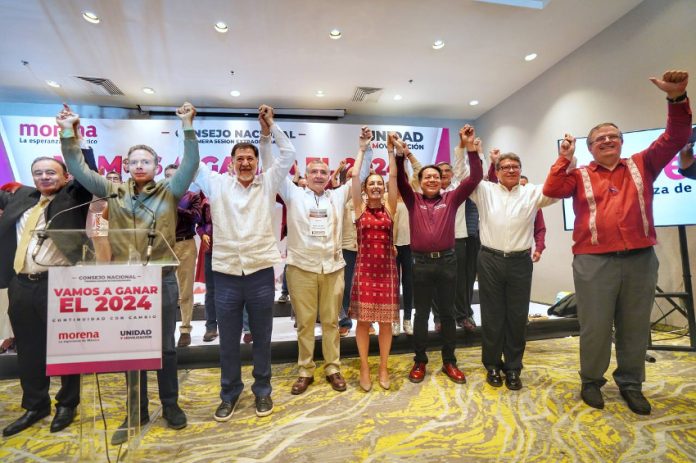The ruling Morena party on Sunday determined many of the key rules for the process to select its candidate for the 2024 presidential election, and said that the winner — who will head up the defense of President López Obrador’s so-called “fourth transformation” of Mexico — will be announced Sept. 6.
At a meeting of the Morena National Council (CNM) in Mexico City, officials approved an agreement that stipulates that a maximum of six aspirants will be permitted to participate in the selection process.
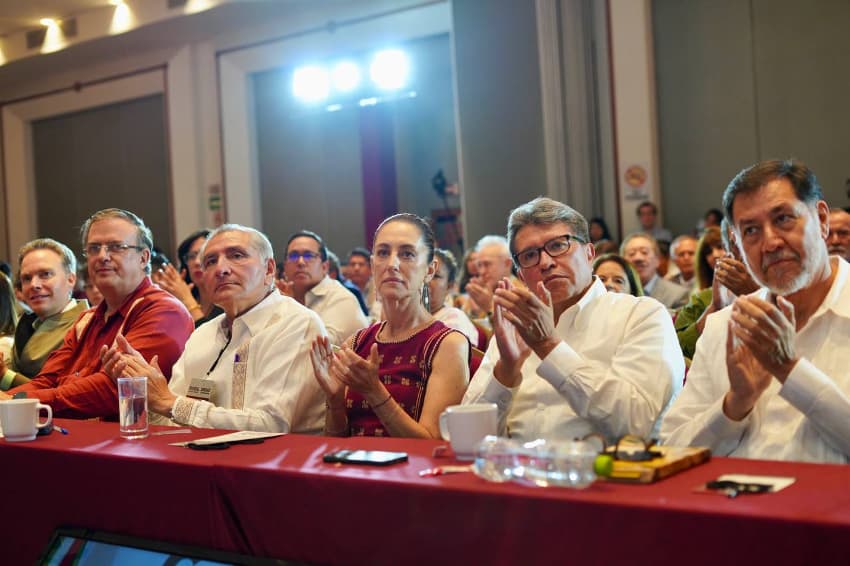
National polls will be conducted between Aug. 28 and Sept. 3 to choose a new standard bearer for Morena, which was founded by López Obrador last decade and is now Mexico’s dominant political party.
Mexico City Mayor Claudia Sheinbaum, Foreign Affairs Minister Marcelo Ebrard, Interior Minister Adán Augusto López Hernández and Senator Ricardo Monreal are the main “pre-candidates” seeking Morena’s nomination.
Gerardo Fernández Noroña, a Labor Party (PT) deputy, and Senator Manuel Velasco of the Ecological Green Party (PVEM) are also interested in competing for the candidacy but are awaiting the formal endorsement of their parties, which are Morena allies.
According to the rules approved on Sunday, each of the aspirants are required to formally register their intended participation in the Morena selection process this week and must resign their current positions the same day, if they haven’t already done so.
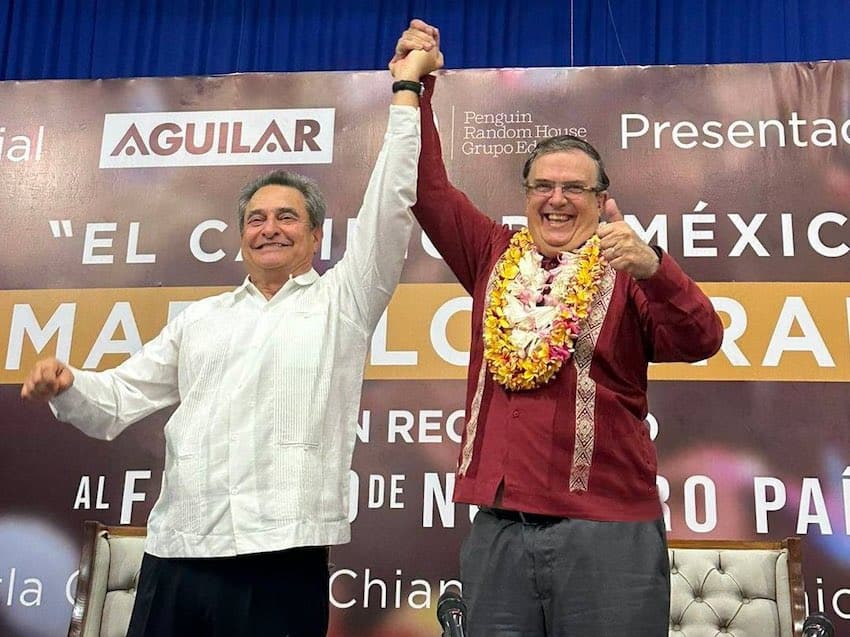
Ebrard, one of the leading contenders to win the Morena nomination, announced last week that he would step down as foreign minister today.
A total of five surveys will be carried out to determine Morena’s candidate for the presidential election, which will be held June 2, 2024.
Morena will conduct one of the surveys, while private polling companies — to be selected randomly from a pool of firms nominated by the aspirants — will carry out four “mirror polls.”
The surveys will likely include a range of questions to assess perceptions on things such as the pre-candidates’ honesty and knowledge of the country, according to the newspaper El País, which spoke with Morena party Secretary General Citlalli Hernández.
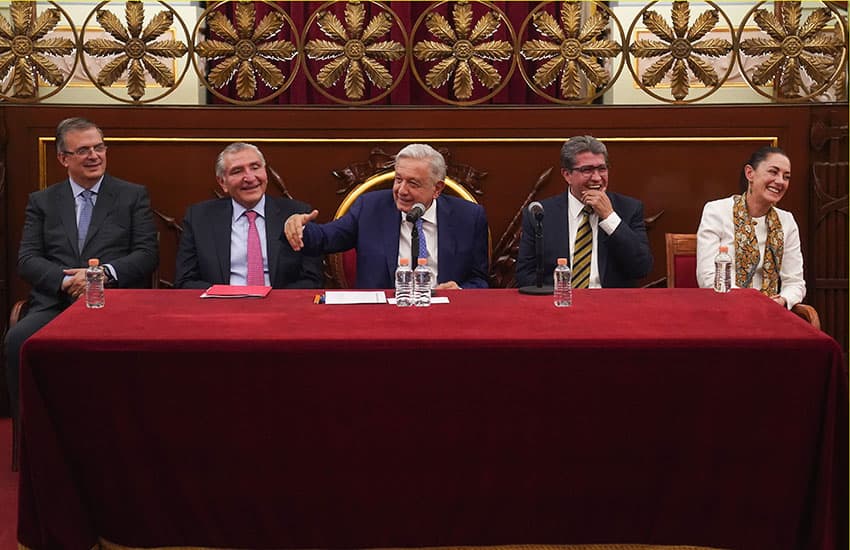
The respondents will also be directly asked who their preferred candidate is, according to Hernández, but responses to all questions will be weighted equally.
Exactly who will be polled and the number of respondents are yet to be determined, but Morena has previously indicated that selection of a candidate will be a task for its members.
The official campaign period for the Morena hopefuls will begin next Monday June 19 and run through Aug. 27. López Obrador, members of his cabinet, Morena governors and all other officials from that party as well as the PT and the PVEM are barred from speaking out in favor of any of the pre-candidates under the rules approved at Sunday’s meeting.
Speaking after the meeting, CNM president and Sonora Governor Alfonso Durazo said that the aspirants would have to formally commit to “the fundamental ethical principles of our movement,” including by making an undertaking “to not lie, steal or betray the people.”
They will also have to pledge to put Mexico’s poorest and most vulnerable people first and always adhere to the law, Durazo said.
Morena national president Mario Delgado told the same press conference that the pre-candidates have been directed to carry out “austere” campaigns with no squandering of money on self-promotion.
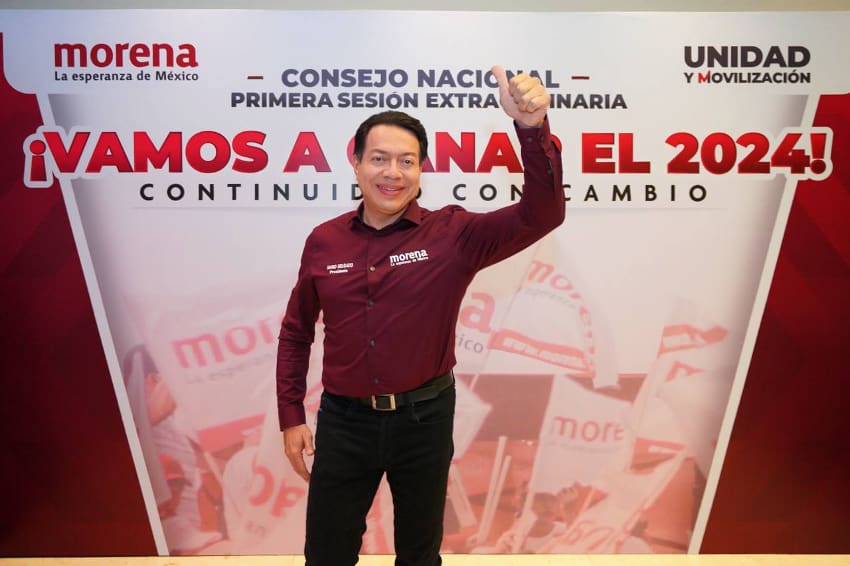
“We want them to go with [and meet] the people [of Mexico],” he said, adding that no debates between the aspirants — for which Ebrard strongly advocated — will be held.
“It has to be a fraternal contest, and there can’t be insults between colleagues; there has to be complete respect,” said Delgado, who left the lower house of Congress in late 2020 to assume the national leadership of Morena.
The aspirants who finish second and third in the selection process will be guaranteed cabinet roles — provided Morena wins the presidency — or leadership positions in Congress, while the other contenders will be allocated proportional representation seats in the federal legislature, according to Durazo.
Delgado said that the aspirants have been forbidden from “speaking ill of or discrediting” the selection process backed by the CNM, and that they must commit to accepting the results of the polls. The pre-candidates are also banned from speaking with “reactionary” and “conservative” media outlets opposed to the López Obrador administration.
Delgado said that the “route” to determine who will “coordinate the defense of the fourth transformation” has now been established, although some important details — such as the questions to be included in the polls and the number of respondents — haven’t been finalized.
“It’s an unprecedented process because it’s inclusive, democratic, transparent … and it ends forever the dedazo, or imposition [of successors by sitting presidents],” Delgado said. “That’s why today is a historic day for our movement.”
At Sunday’s CNM meeting, the six aspirants pledged to maintain unity as they compete with each other to secure the Morena nomination. Polls indicate that whoever Morena puts forward is likely to win the presidency on June 2, 2024.
Sheinbaum, the pre-candidate considered most likely to win Morena’s nomination, said on Twitter Sunday that a “historic agreement of unity” was reached at the CNM meeting.
“That gives me a lot of happiness and the conviction to move forward,” said the mayor, who would become Mexico’s first female president if she wins next year’s election.
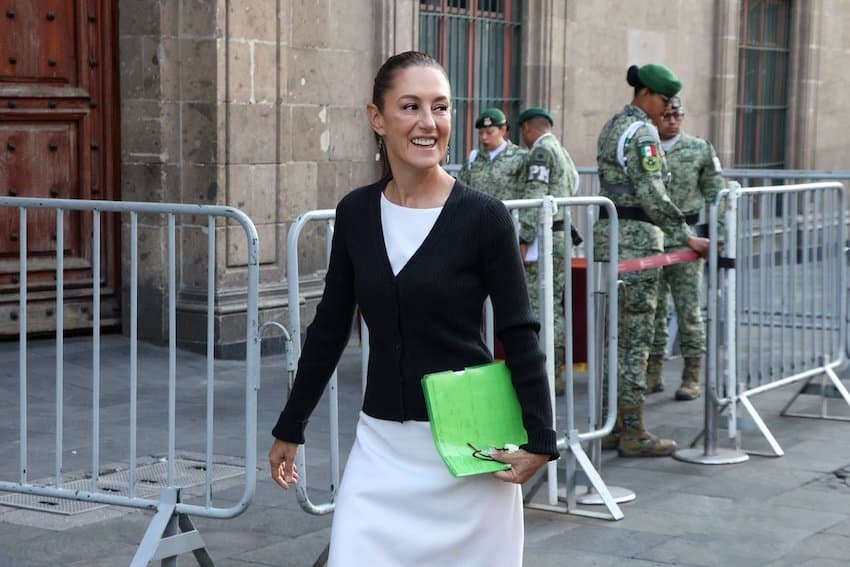
“The desire of the people of Mexico to continue the transformation that President López Obrador began, and [what would be] the great feat of having, for the first time, a woman as the national coordinator of the transformation, gives us encouragement,” she wrote.
Ebrard, who is seen as Sheinabum’s main rival, said that a “real competition” between the aspirants has now begun.
“A direct debate hasn’t been accepted yet, [but] we’re going to continue insisting on one. But everyone has to present their proposals — if you don’t, how will you win support?” he added.
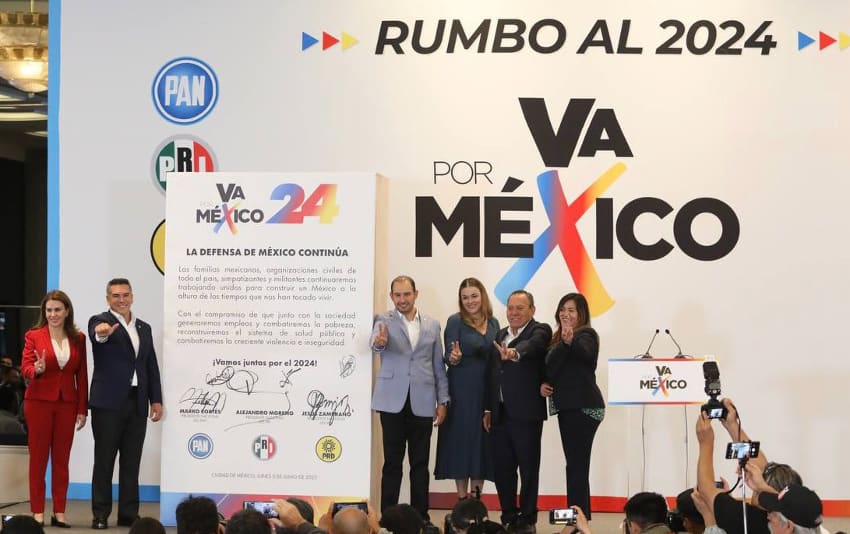
There is currently little clarity about who will face off against the Morena candidate.
The parties of the opposition Va por México alliance — the National Action Party, the Institutional Revolutionary Party and the Democratic Revolution Party — announced in January that they would field a common candidate at the election, and at a joint press conference on June 5, the party leaders said they would announce their selection method by June 26.
Another opposition party, Citizens Movement (MC), has indicated it will also field a presidential candidate, but a recent Reforma newspaper poll found that MC — which is in power in Nuevo León and Jalisco — has national support of just 5%.
With reports from El País, El Financiero, and Reforma
